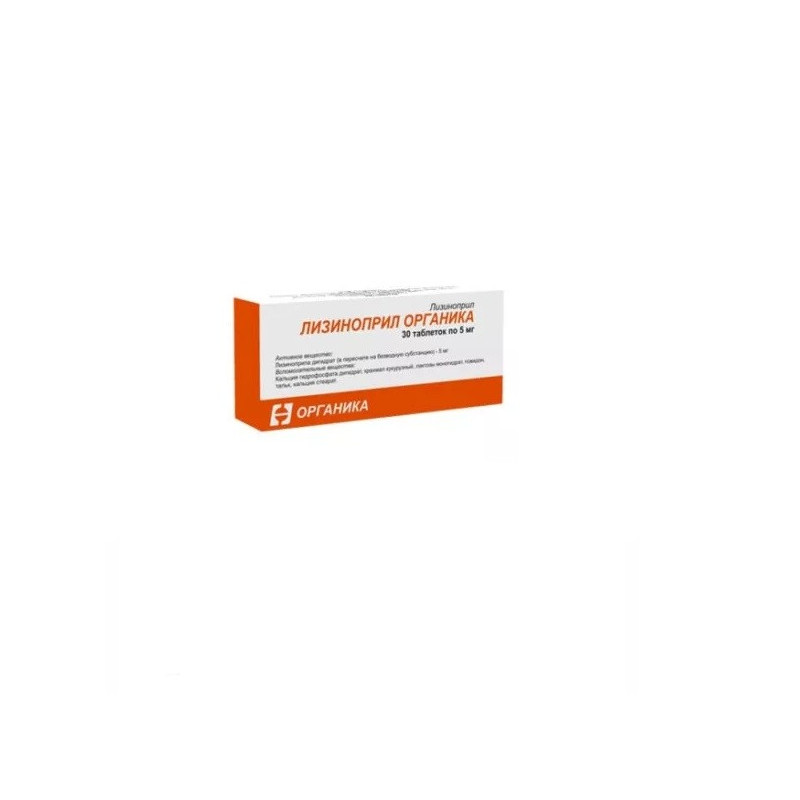



 All payments are encrypted via SSL
All payments are encrypted via SSL
 Full Refund if you haven't received your order
Full Refund if you haven't received your order
Pills
Lisinopril dihydrate
30 pieces
LIZINOPRIL - an ACE inhibitor. Violates the formation of angiotensin II and reduces its vasoconstrictor action, as well as its stimulating effect on the production of aldosterone in the adrenal glands. Against the background of the action of lisinopril, OPSD is reduced, the afterload is reduced, and BP is reduced. Preload also decreases, pressure in the pulmonary circulation decreases.
Arterial hypertension (including renovascular); chronic heart failure (as part of combination therapy).
Severe renal dysfunction, bilateral renal artery stenosis or arterial stenosis of a single kidney with progressive azotemia, condition after kidney transplantation, azotemia, hyperkalemia, primary hyper aldosteronism, stenosis of the aortic orifice and similar obstructions to blood flow, hereditary Quincke edema; pregnancy, lactation, childhood, hypersensitivity to lisinopril and other ACE inhibitors.
In hypertension, the initial dose is 10 mg 1 time / day. With insufficient severity of the hypotensive effect, the dose is increased to 20-40 mg (rarely to 80 mg).
In chronic heart failure, the initial dose is 2.5 mg, the maintenance dose is 5-20 mg.
Patients with impaired water-electrolyte metabolism, renal failure, renovascular hypertension, as well as receiving diuretics, individually select the dose.
Dizziness, headache, feeling of tiredness, nausea, dry cough are possible; rarely - orthostatic hypotension, asthenia, allergic genesis skin rash, tachycardia, abdominal pain, diarrhea, dry mouth; in isolated cases - angioedema, mood lability, confusion, kidney dysfunction, impotence, hyperkalemia, increased activity of hepatic transaminases, increased bilirubin concentration in the blood, neutropenia, agranulocytosis, reduced levels of hemoglobin and red blood cells. Cases of the development of acute renal failure, arthralgia, myalgia, fever are described.
Before starting treatment with lisinopril, it is necessary to compensate for the loss of fluid and salt.
With extreme caution used in patients with impaired renal function, as well as patients receiving saluretiki and antidepressants.
Perhaps a decrease in the effect of lisinopril while taking NSAIDs.
With simultaneous use with potassium-sparing diuretics, hyperkalemia is possible; with lithium preparations - slowing down the excretion of lithium from the body is possible.
